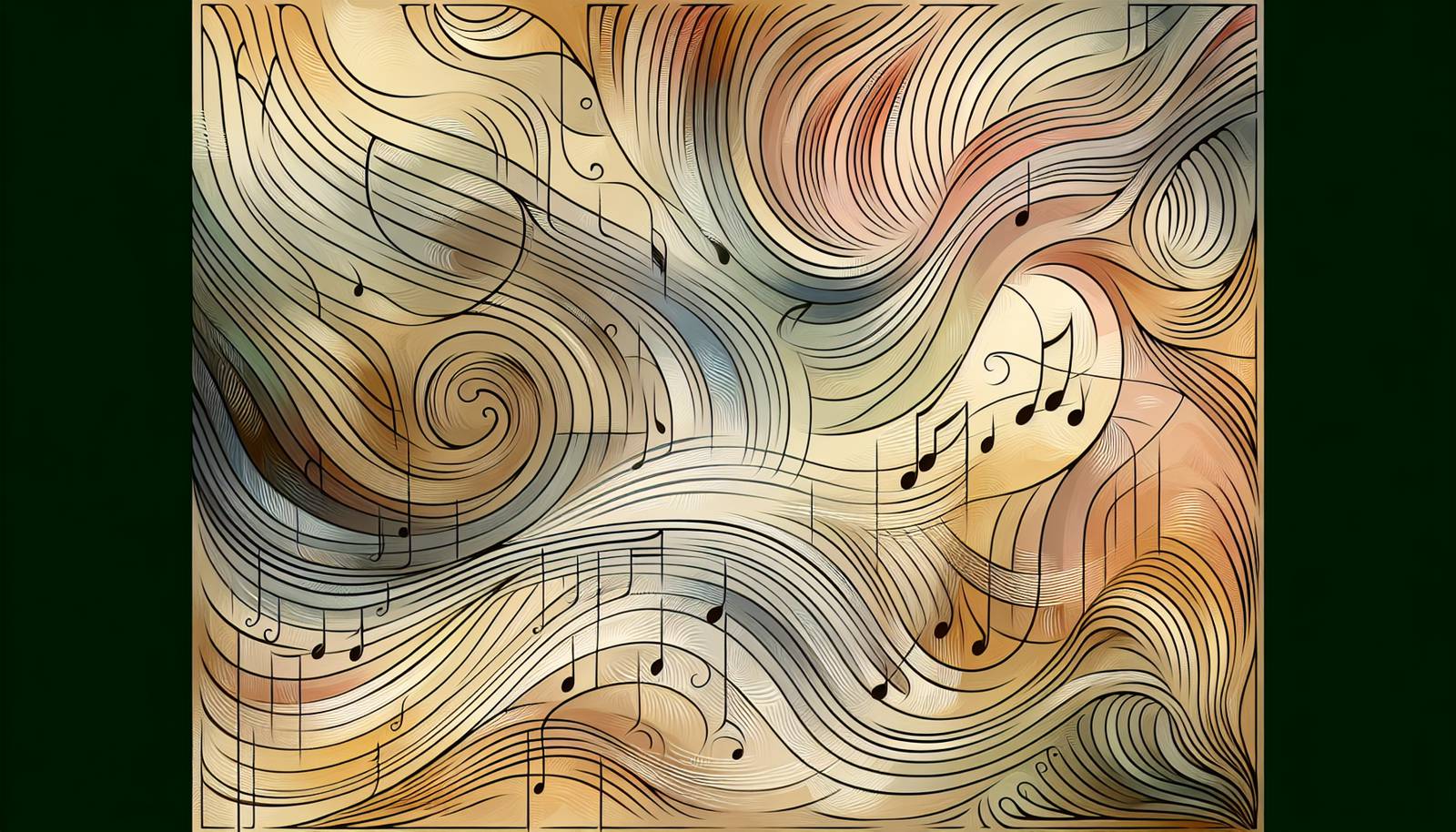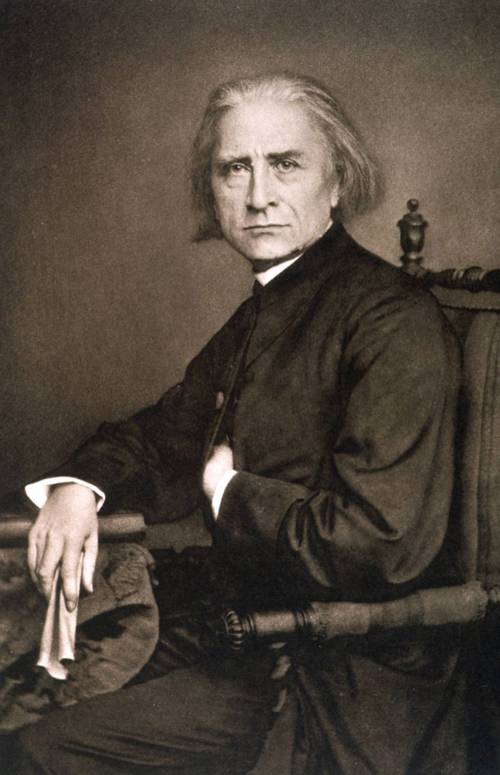
FAQ About Franz Liszt

Who was Franz Liszt?
Franz Liszt was a renowned 19th-century Hungarian composer and virtuoso pianist. He was known for revolutionizing piano performance and for his significant contribution to the Romantic music era with a vast repertoire that included symphonic poems, piano pieces, and religious choral works.

What is Franz Liszt most famous for?
Franz Liszt is most famous for his remarkable skills as a piano virtuoso and for his development of the symphonic poem. He composed a wide range of music that showcased not only technical virtuosity but also profound emotional expression, thus significantly influencing the Romantic music era.

How did Franz Liszt change concert performance practices?
Franz Liszt transformed concert performance practices by performing piano recitals from memory, which was unprecedented at the time. He also popularized the solo recital format, wherein a single performer played an entire concert. Moreover, Liszt elevated the status of the piano as a legitimate concert instrument.

What were some of Franz Liszt's notable works?
Some of Franz Liszt's notable works include the "Hungarian Rhapsodies," the "Transcendental Études," and the "Piano Sonata in B minor." He also composed the orchestral work "Les Préludes," which is one of his symphonic poems.

Did Franz Liszt have any significant relationships with other composers?
Yes, Franz Liszt had significant relationships with other composers of his time. He was a close friend and supporter of Richard Wagner, whose work he promoted and defended. Liszt was also influential in promoting the works of composers like Frédéric Chopin, Robert Schumann, and Hector Berlioz.

What was Franz Liszt's contribution to the symphonic poem?
Franz Liszt is credited with creating the symphonic poem, a single-movement orchestral work that depicted themes, ideas, or poetic narratives. His symphonic poems, such as "Les Préludes," were innovative in integrating programmatic elements within orchestral music, linking literature and music closely.

How did Franz Liszt's upbringing influence his music career?
Born in 1811 to a musical family in Hungary, Franz Liszt was exposed to music from a young age. His father, Ádám Liszt, was an amateur musician who recognized Franz's potential and encouraged him to pursue music. This early support and exposure to important teachers in Vienna helped foster his extraordinary talents as a pianist and composer.

What is the significance of Franz Liszt's "Hungarian Rhapsodies"?
The "Hungarian Rhapsodies" are significant because they showcase Franz Liszt's deep connection to his Hungarian roots through incorporating traditional Hungarian folk melodies and rhythms. These pieces combined virtuosic piano techniques with nationalistic elements, contributing to their popularity and Liszt's legacy in classical music.

In what ways did Franz Liszt influence other musicians?
Franz Liszt influenced other musicians by setting new standards for piano performance and technical capabilities. His advancements in technique inspired future generations of pianists. As a teacher, Liszt mentored numerous students who became prominent musicians. His contributions to composition and music theory also left a lasting impact on Romantic and future music.

Why is Franz Liszt considered a pioneer of the solo piano recital?
Franz Liszt is considered a pioneer of the solo piano recital because he popularized the format of a single pianist performing a full program of music, usually by memory. This practice was not common before Liszt's time and has since become a standard for piano performances.

What role did Franz Liszt play during the cultural movements of his time?
Franz Liszt was deeply involved in the cultural movements of his era, particularly Romanticism. He embraced its ideals by emphasizing emotion, drama, and nationalistic elements in his music. Liszt also supported the "New German School," which advocated programmatic music and innovations in musical structure.

How did Franz Liszt's compositional style evolve over his lifetime?
Franz Liszt's compositional style evolved from virtuosic and highly expressive piano works to more introspective and religious compositions later in life. His early works focused on showcasing his exceptional piano skills, while his later works, such as sacred music and oratorios, reflected his interest in spirituality and philosophical themes.

Did Franz Liszt have any formal musical education?
Yes, Franz Liszt did receive formal musical education. He studied in Vienna under renowned teachers such as Carl Czerny for piano and Antonio Salieri for composition. These formative years provided Liszt with a solid foundation in both performance and composition, which he built upon throughout his career.

What are some interesting facts about Franz Liszt's personal life?
Franz Liszt was known for his charismatic personality and complex personal life. He had numerous romantic relationships, including one with the French countess Marie d'Agoult. Later in his life, he took on minor clerical orders in the Catholic Church, becoming an abbé, which influenced his later religiously themed compositions.

How did Franz Liszt's religious beliefs influence his music?
Franz Liszt's religious beliefs, particularly his later conversion to a deep Catholic faith, significantly influenced his music. His religious convictions are reflected in works such as "Christus" and "Via Crucis," which explore spiritual and liturgical themes. This aspect of his music showcases his interest in combining music with sacred and philosophical ideas.

What was the significance of Franz Liszt's relationship with Richard Wagner?
Franz Liszt's relationship with Richard Wagner was significant both personally and professionally. Liszt was an ardent supporter of Wagner's music and ideals, helping to promote and perform his works. Furthermore, when Wagner became Liszt's son-in-law by marrying his daughter, Cosima, their bond strengthened, intertwining their personal and musical legacies.

Did Franz Liszt write only for solo piano?
No, while Franz Liszt is most well-known for his solo piano compositions, he wrote extensively for various ensembles and orchestras. His works include symphonic poems, choral pieces, songs, and even orchestral transcriptions of other composers' music, showcasing his diverse musical talents.

How is Franz Liszt's music characterized within the Romantic era?
Franz Liszt's music during the Romantic era is characterized by its emotional intensity, virtuosic demands, and innovative forms. He was at the forefront of Romanticism by using expressive melodies, dramatic contrasts, and unorthodox harmonies, which often introduced new technical challenges and expressive possibilities for performers.

What legacy did Franz Liszt leave behind in the music world?
Franz Liszt's legacy in the music world is vast. As a pianist, he set new standards for performance technique and established the piano recital's popularity. As a composer, he contributed significantly to the Romantic repertoire, introducing forms like the symphonic poem. Liszt's influence extends to his students and his work's inspiration on future composers.

Where can I find reliable sources about Franz Liszt's life and works?
Reliable sources about Franz Liszt's life and works can be found in biographies such as "Liszt: A Life" by Derek Watson or "Franz Liszt: The Virtuoso Years" by Alan Walker. Additionally, scholarly journals and articles available through music libraries or online academic databases like JSTOR provide in-depth studies of his music and influence.
